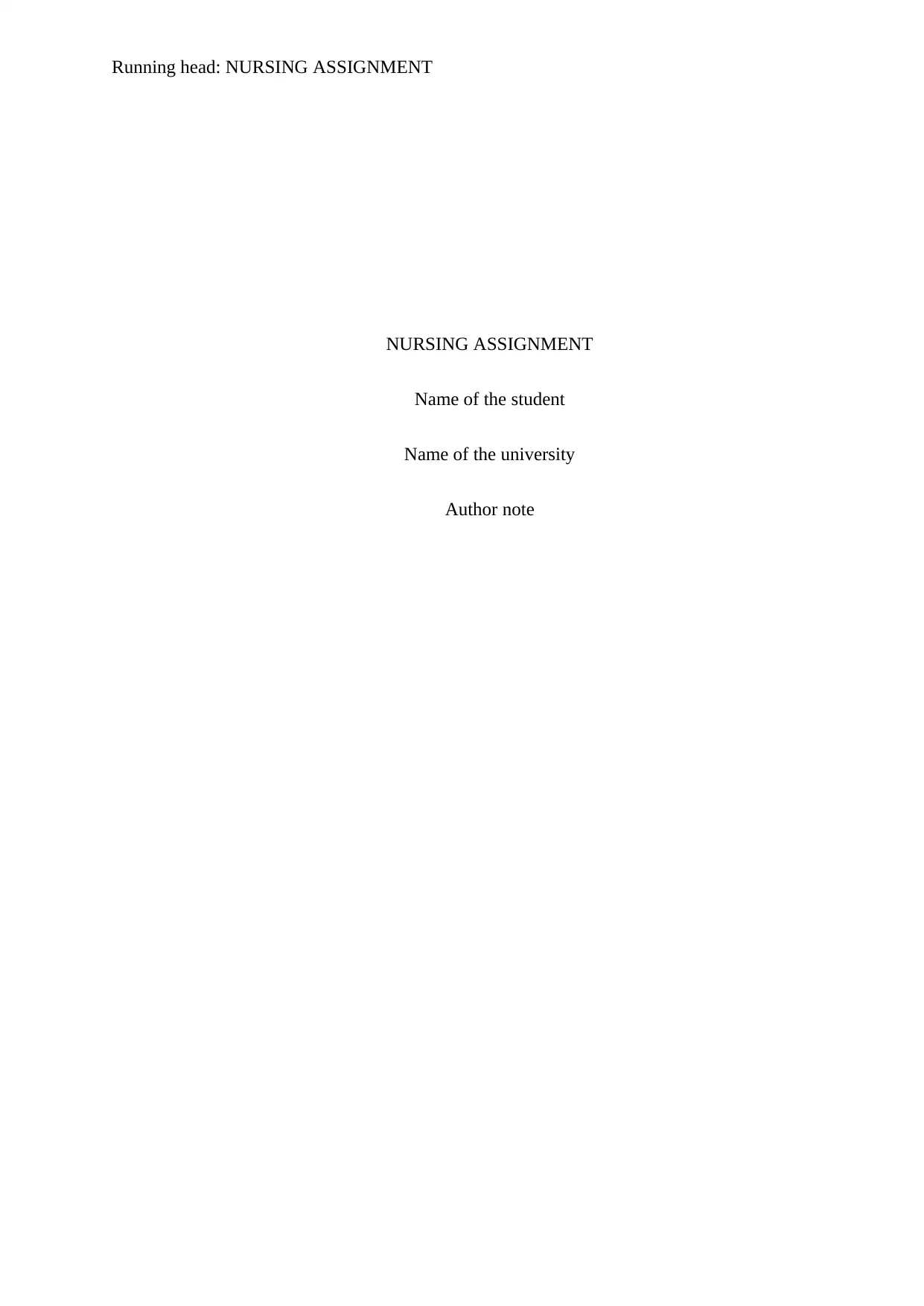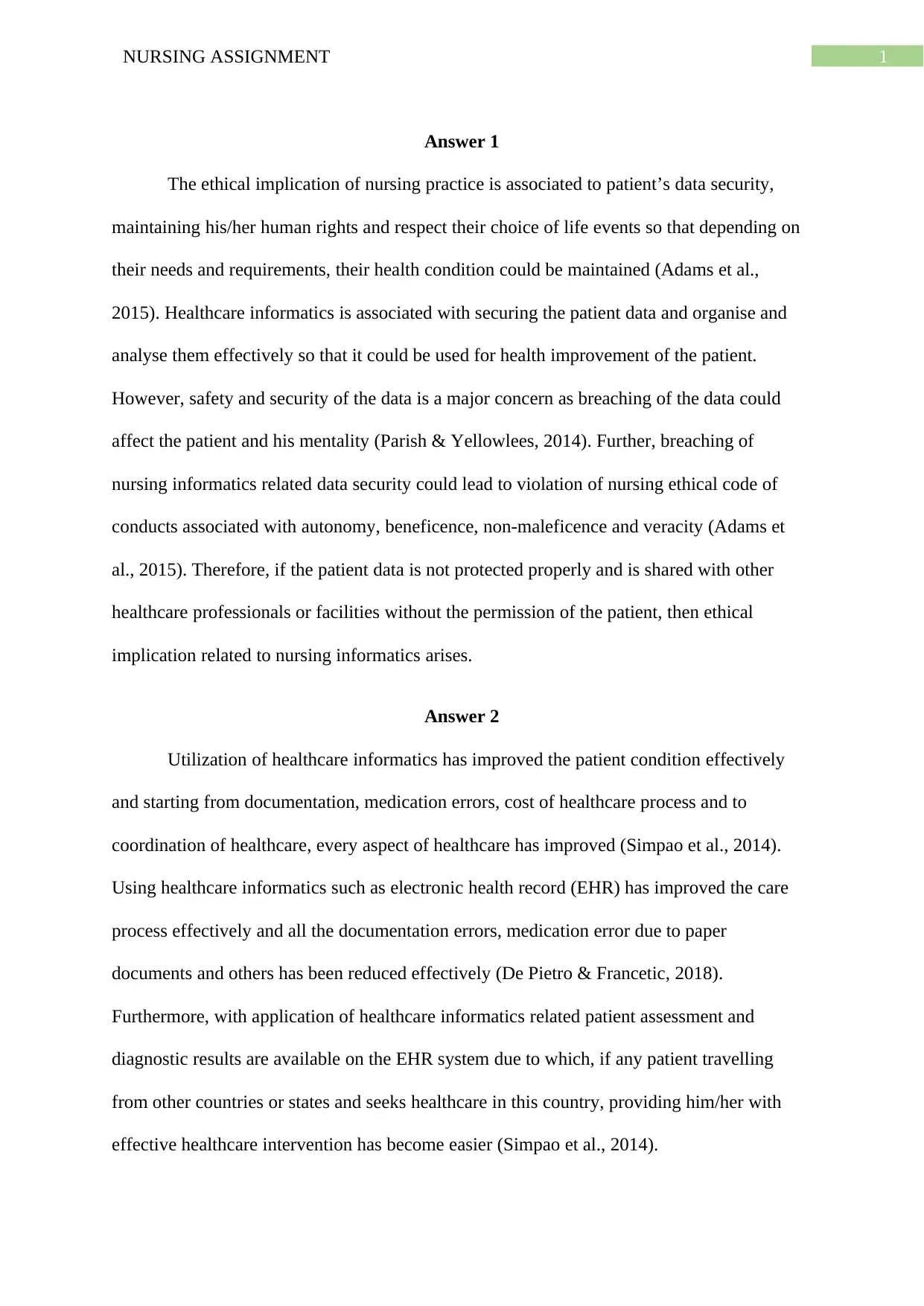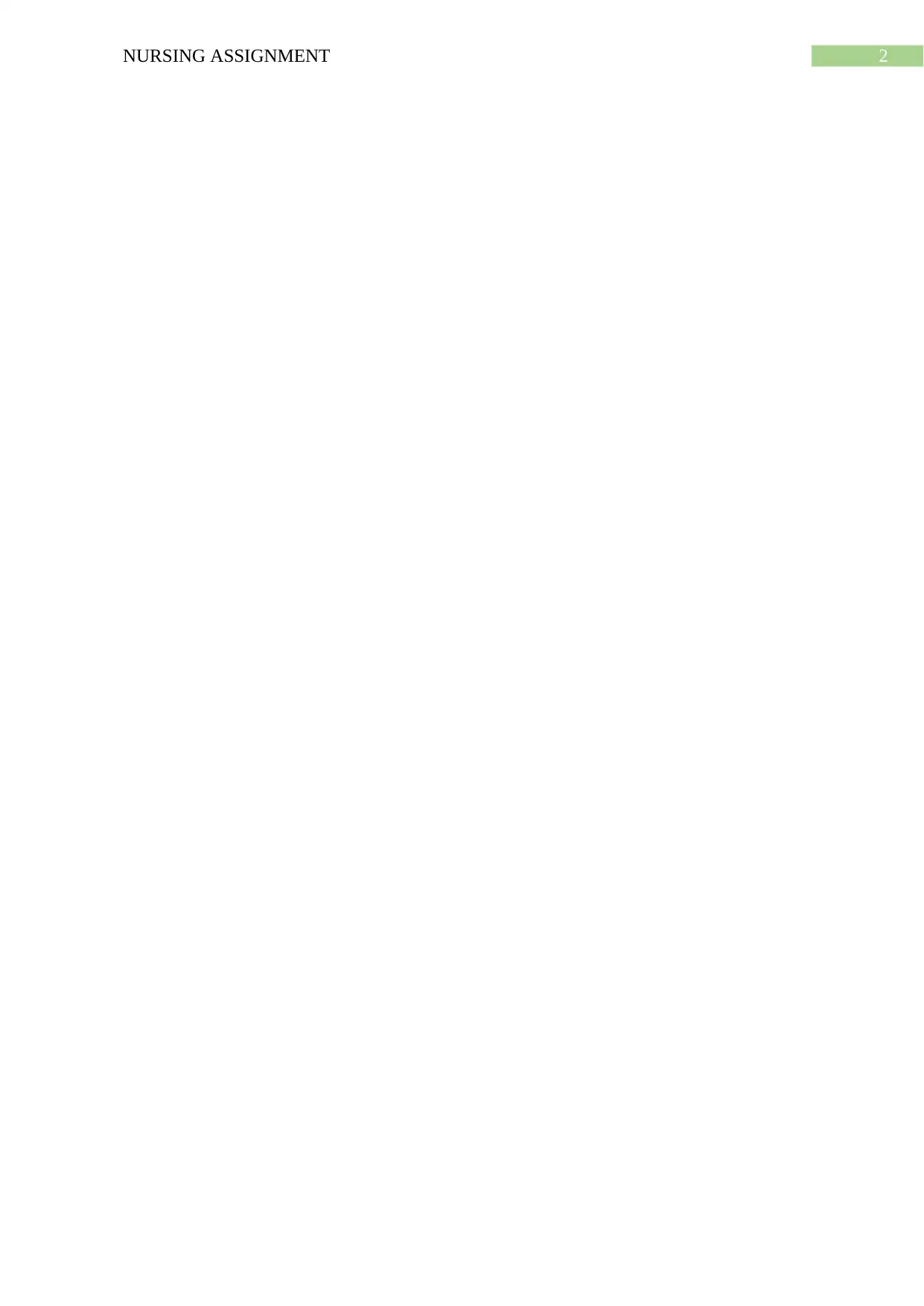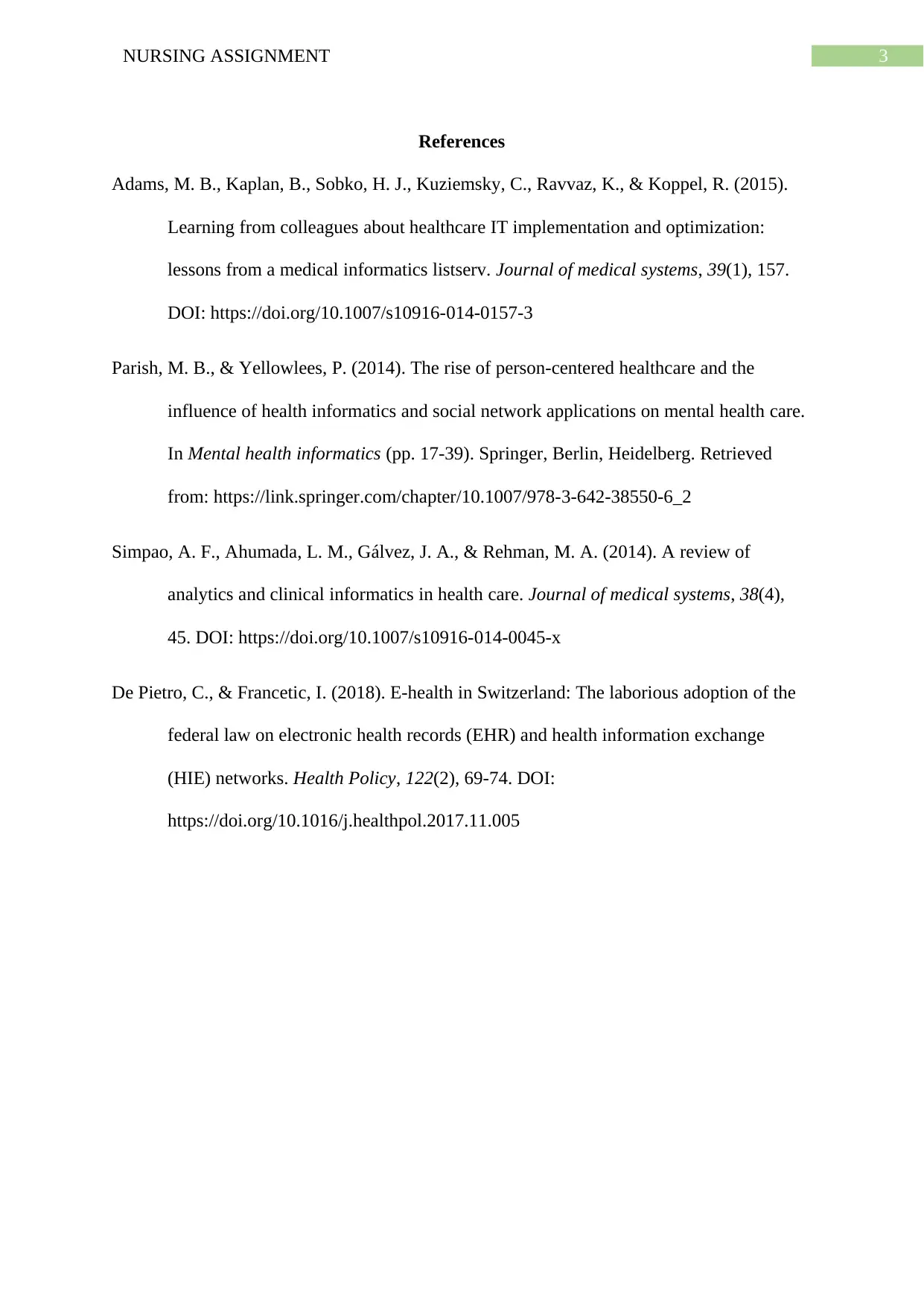Nursing Informatics: Ethical Concerns and Practice Influence
VerifiedAdded on 2023/01/20
|4
|582
|90
Homework Assignment
AI Summary
This nursing assignment delves into the ethical implications of nursing informatics, focusing on concerns related to patient data security, human rights, and respecting patient choices. It examines how healthcare informatics, particularly electronic health records (EHRs), impacts nursing practice by improving documentation, reducing medication errors, and enhancing care coordination. The assignment highlights the importance of protecting patient data to uphold ethical codes of conduct, including autonomy, beneficence, non-maleficence, and veracity. The use of health information technology (HIT) has significantly improved patient care, streamlining processes and providing more efficient access to patient information, thus aiding in better healthcare interventions, especially for patients seeking care in different locations. The provided solution references key studies and provides a comprehensive overview of the ethical considerations and practical applications within nursing informatics.
1 out of 4











![[object Object]](/_next/static/media/star-bottom.7253800d.svg)